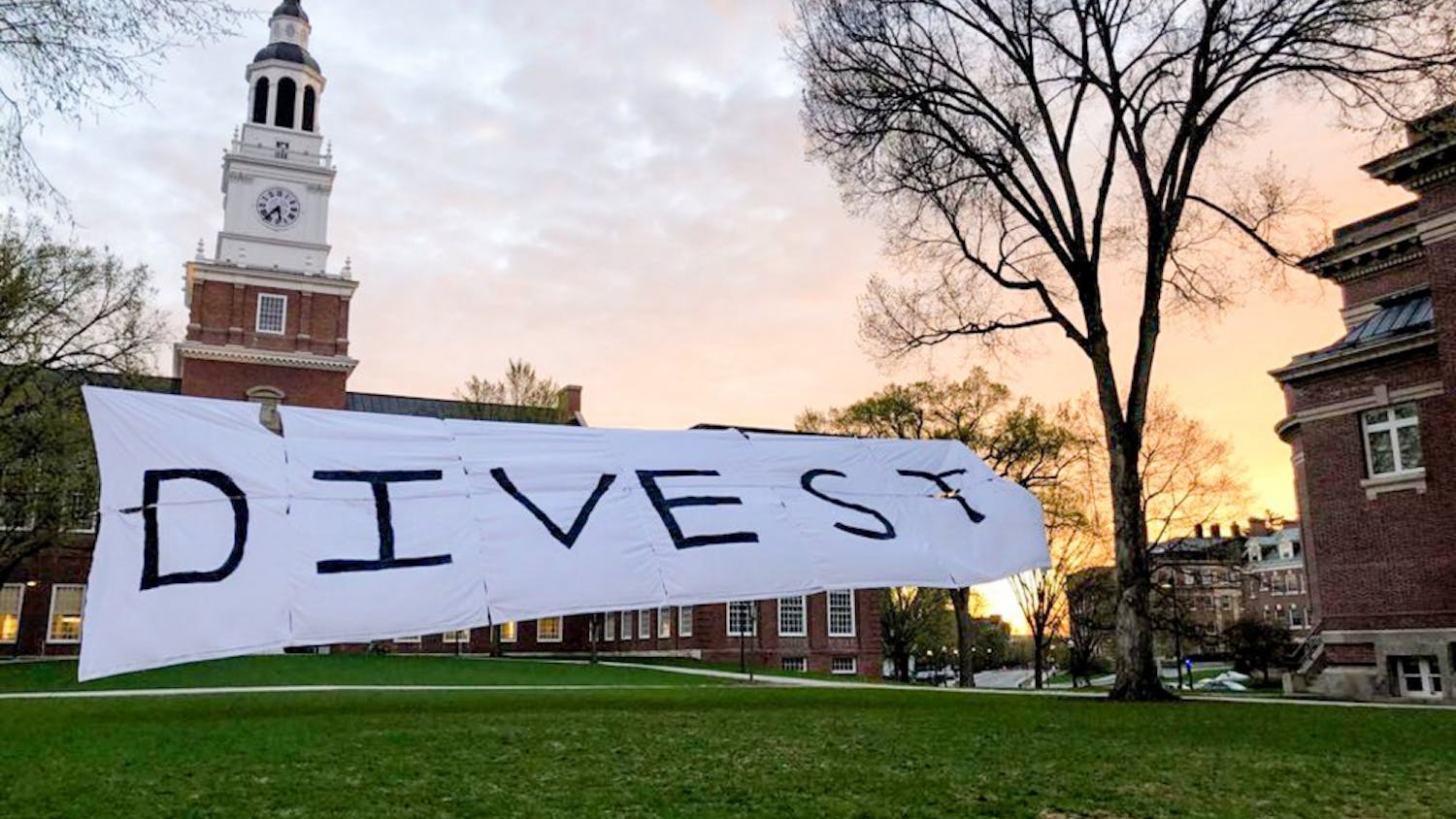Members of the Class of 2023 fresh out of First-Year Trips gave Divest Dartmouth a lot of attention during last week’s activity fair. Divest Dartmouth is a well-known brand at Dartmouth — they have almost 1,500 followers on Facebook and their stickers give MacBooks and Nalgenes around campus more personality. Divest Dartmouth also has a mission: “That Dartmouth College ceases to invest in coal, tar sands and the Climate Action List of the most harmful oil and gas companies identified by the Fossil Free Index and Union of Concerned Scientists.”
Divest Dartmouth presumably sees this mission as a step towards a more sustainable world. However, nature-loving ’23s should not be so easily convinced. Divestment is a misguided and futile effort that can only harm Dartmouth’s ability to reduce its own carbon footprint and offer aid to historically disadvantaged communities. Rather than supporting a lost cause, environmentally-conscious ’23s should push Divest Dartmouth to drop divestment from their mission in favor of increased climate science education.
One secret Divest Dartmouth won’t tell you is that divestment in fossil fuels at any scale would not lead to energy sustainability. For all of Divest Dartmouth’s anger at Big Oil titans like Exxon Mobil for their climate disinformation campaigns, Exxon Mobil is also one of the world’s leading researchers into renewable energies. Fossil fuel companies could account for as much as a fifth of all investment into renewable energies. While activists criticized Big Oil in 2018 for allocating only one percent of their capital expenditure to renewable energies, this is a praise-worthy sum in the billions of dollars that amounts to roughly a third of their research and development budgets. However, these efforts would probably be the first to go if these companies were choked off from capital markets. Divestment would force Big Oil to double down on its core business and turn an invaluable climate ally into a formidable foe. This would set back the world’s shift to renewables by many years and hinder the climate agenda that Divest Dartmouth members are so passionate about.
Another secret Divest Dartmouth won’t tell you is that divestment in fossil fuels could potentially reduce the returns of the Dartmouth endowment that supports financial aid, climate research and Dartmouth’s own sustainability initiatives on its campus. There is an axiomatic fact of modern portfolio theory that in the long run, portfolios return more the better they are diversified. The energy sector is an important and sizeable sector of the American economy — energy stocks appear in both the S&P 500 and the Dow Jones Industrial Average. Saying goodbye to energy stocks means saying goodbye to the diversification benefits they bring. This financial windfall to the endowment helps fund everything at Dartmouth — from our generous financial aid programs to groundbreaking climate research and Dartmouth’s historic shift away from dirty No. 6 fuel oil to renewable energies.
But the good news for Divest Dartmouth is that their proposals have no hope of ever being implemented on a meaningful scale. If Divest Dartmouth dreams of making a social statement against the propaganda and of fossil fuel corporations as they say, the truth of the matter is that few investors would hear such a statement, and fewer still would care. About half of the stock market is owned by passive funds that only buy and hold stocks in indexes like the S&P 500 and the Dow Jones Industrial Average that include energy stocks. Of the roughly $113 trillion in assets that American households owned in 2018, only $12 trillion was managed by sustainable investing funds. But even if Divest Dartmouth could inspire incremental divestment until fuel companies struggle to fundraise, algorithmic traders would quickly notice the newly undervalued fossil fuel securities and keep buying them until their liquidity and asset prices returned to normal levels. Divest Dartmouth cannot defy market logic because American households simply do not care about the asset allocations of Ivy League endowments.
But some Dartmouth students do. Such environmentally-conscious students should be applauded, but they should not be allowed to make investing decisions. Dartmouth’s endowment of nearly $6 billion can find better management. Ivy League environmentalists should put their passion to use by directly fighting the legacy of fake climate science. ’23s can better promote the environmentalist cause by putting old myths to rest and combatting climate skepticism, pushing environmental issues to the forefront of policy debate and driving concrete action. This requires the manpower and organizational bandwidth that Divest Dartmouth is wasting on its crusade for divestment. Nature-loving ’23s can reclaim their environmentalist movement and push Divest Dartmouth to join the movement against climate disinformation.



